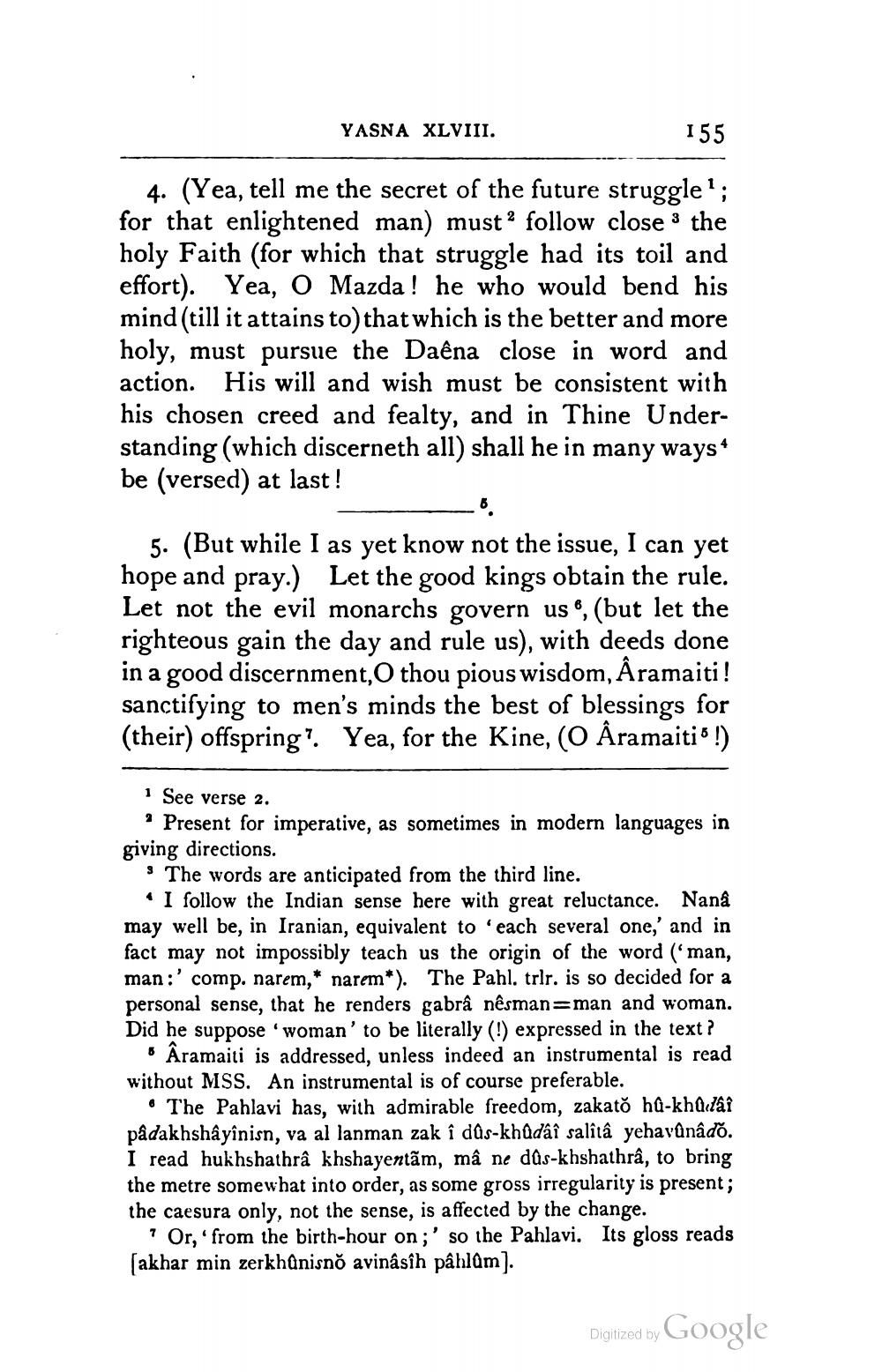________________
YASNA XLVIII.
155
4. (Yea, tell me the secret of the future struggle?; for that enlightened man) must? follow close 3 the holy Faith (for which that struggle had its toil and effort). Yea, O Mazda! he who would bend his mind (till it attains to) that which is the better and more holy, must pursue the Daêna close in word and action. His will and wish must be consistent with his chosen creed and fealty, and in Thine Understanding (which discerneth all) shall he in many ways be (versed) at last !
5. (But while I as yet know not the issue, I can yet hope and pray.) Let the good kings obtain the rule. Let not the evil monarchs govern us *, (but let the righteous gain the day and rule us), with deeds done in a good discernment, thou pious wisdom, Âramaiti! sanctifying to men's minds the best of blessings for (their) offspring? Yea, for the Kine, (O Âramaitio !)
i See verse 2.
Present for imperative, as sometimes in modern languages in giving directions.
The words are anticipated from the third line.
I follow the Indian sense here with great reluctance. Nana may well be, in Iranian, equivalent to each several one,' and in fact may not impossibly teach us the origin of the word ('man, man:' comp. narem,* narem*). The Pahl. trlr. is so decided for a personal sense, that he renders gabrâ nêsman=man and woman. Did he suppose woman' to be literally (!) expressed in the text ?
• Âramaiti is addressed, unless indeed an instrumental is read without MSS. An instrumental is of course preferable.
• The Pahlavi has, with admirable freedom, zakato hû-khudai pâdakhshayînisn, va al lanman zak i dus-khûdâî salîtâ yehavânâdo. I read hukhshathrâ khshayentãm, mâ ne důs-khshathra, to bring the metre somewhat into order, as some gross irregularity is present; the caesura only, not the sense, is affected by the change.
? Or, from the birth-hour on;' so the Pahlavi. Its gloss reads Sakhar min zerkhûnisnõ avinasih pahlûm).
Digitized by Google
Digitized by




